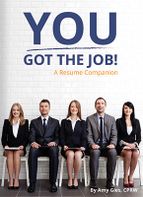Writing a CV can be intimidating, especially if it’s your first time. Transitioning into an executive role is a huge milestone. Whether you are advancing in your career or seeking a new role, your CV must convey your experience, leadership, vision, and strategic impact. In 2025, executive hiring trends have shifted to reflect the new realities of the workplace.
What Executive Skills will Companies look for in 2025?
In 2025, organizations aren’t just hiring leaders; they are hiring individuals with passion and vision. These are the core executive skills sought after from top-level recruiters:
- Strategic thinking and decision-making
- AI fluency and digital transformation
- Emotional intelligence and people-centric leadership
- Crisis Management
- Cross-cultural acumen
- ESG and sustainability awareness
- Data-driven leadership
How to Highlight Skills to Become a First-Time Executive
For individuals seeking their first executive leadership role, your CV must clearly show readiness for the position. Focus on these items:

- Scope of Influence: Mention projects that you have led and that have influenced business outcomes.
- KPIs and Metrics: Emphasize your impact using data like revenue growth, savings, and market expansion.
- Initiative: Highlight the programs or systems you implemented into the business.
- Leadership Development: Showcase how you have mentored others.
- Strategic Projects: Provide examples of how you have had experience in long-term planning with projects.
What to Include in a Winning Executive CV for 2025
1. Targeting and Research
Tailor your CV to fit the company you are applying for. Start by researching:
- The company’s executive team
- Current market
- Technologies or business models the company uses
- Values, mission, and leadership culture of the business
Using this research will help align your tone, achievements, and terminology with the company’s language, culture, and priorities.
2. An Engaging and Logical Format
An executive CV should be 2-3 pages long. Here are some formatting tips:
- Header and contact information
- Executive summary
- Key achievements or highlights
- Experience
- Education
- Board roles, public speaking, or publications
- Skills and tools
3. Personal Branding and Value Proposition
Avoid using your executive summary as an intro; make it sound like a pitch. Include:
- Your professional identity
- 2-3 of your most significant achievements
- Industry specialties or markets you have led
- A statement of leadership style
4. Career Success Stories
Choose 3-5 quantifiable achievements and list them early on in your executive CV. Use the STAR method:
- Situation
- Task
- Action
- Result
5. Personal Details: Dos and Don’ts
Do Include:
- Full name
- Phone number and email address
- City and country
Don’t Include
- Date of birth
- Marital status
- Photos
- Irrelevant personal hobbies
6. Career Overview
Include a career timeline or summary of your experience. Provide the year and a quick overview of the role you played.
7. An Exploration of Your Professional Experience
For each role, you should list the company, role, dates, and a short 1-sentence description. Add 3 to 6 bullet points with quantifiable outcomes and emphasize promotions, transformation projects, team sizes, and budgets. Avoid listing duties and instead focus on the impact you had on the company.
8. Your Education and Qualifications
Include your degrees with the institution’s name and the date it was received, executive programs, or certifications you have completed. This section should be concise.
Here’s an Example of what your CV should look like:

John Smith
Job titles
Location, email, LinkedIn profile
Executive Summary
3-5 concise sentences that explain who you are professionally and how you can contribute to the company.
Key Achievements
- A bullet point section that shows quantifications with accomplishments
Professional Experience
- Include your job titles, company names, dates of employment, a brief job summary, and key responsibilities you had. This section can be organized as bullet points if you have multiple areas to cover.
Education and Certifications
- Include the degree you earned, field of study, name of institution, timeline of attendance, and any relevant achievements or rewards.
Skills and Tools
- This section is used to complement your work history by providing details of your skills that back up your accomplishments and achievements. Use bullet points in this section to avoid over-explanation of skills.
An executive CV should be concise while giving the recruiters enough information about yourself and why you qualify for the position. Be sure to include keywords tailored to the company you are applying for to make your resume stand out against Applicant Tracking Systems (ATS).
Final Checklist for your Winning CV
Before sending off your executive CV, make sure you have:
- Tailored your CV to the job
- Made every bullet point measurable
- Kept the format clean
- Written in both active and past tense
- Include your LinkedIn
- Proofread for typos
- Had a peer review of it
And Some Resume FAQs That May Apply to You
What format should I use for my resume?
Unless a company requests a specific type of document, like Word, stick to using a PDF. PDFs will preserve your resume’s format as intended, without introducing additional spacing or formatting issues.
How do I deal with employment gaps?
Avoid lying about employment gaps; it is best to be honest but strategic at the same time. Label gaps if they were due to:
- Freelancing
- Caregiving
- Education/personal development
- Sabbatical
Do I really need to include a cover letter?
Yes, especially while creating an executive resume. A cover letter gives you the chance to show cultural fit, explain career pivots, add a narrative, and demonstrate your interests in the company.
Do I need a resume if I have a good LinkedIn profile?
Yes. LinkedIn complements a resume and acts in support of one; it doesn’t replace the need for a resume. Recruiters still require resumes for their documentation purposes. Be sure your CV and LinkedIn mirror each other to ensure consistency on dates, titles, and accomplishments.
Build your Executive CV with Capstone Resume Services
Building an executive CV for a new role can seem intimidating without the proper guidance and help. Whether you need help with formatting a CV or creating a LinkedIn profile, Capstone Resume is here to help. We offer services that will help optimize your resume and LinkedIn profile to reflect your growth on a professional level. Contact us today to get started on your executive CV.

